Every year, May 20 is observed as World Bee Day! The purpose of this day is to acknowledge the role of bees and other pollinators in the ecosystem.
On December 20, 2017, UN Member States unanimously approved Slovenia’s proposal to proclaim May 20 as World Bee Day, after three years of international efforts.
Bees are a commonly known species and can be found across the world. However, their importance in the ecosystem is underrated. To reiterate, bees provide a crucial ecosystem service by pollinating a wide variety of flowering plant species.
“Nearly 90 per cent of the world’s wild flowering plant species depend, entirely, or at least in part, on animal pollination, along with more than 75 per cent of the world’s food crops and 35 per cent of global agricultural land. Not only do pollinators contribute directly to food security, but they are key to conserving biodiversity,” says the UN.
Bees and other pollinators play a crucial role in maintaining the population dynamics of plants. Unfortunately, in recent years, there is an alarming decline of animal pollinators due to various factors, including climate change, habitat loss, exploitation of ecosystem services, and much more.
This decline is a serious threat to the biodiversity of all sorts and it is crucial to monitor their decline and eliminate the causes. And there are startups dedicated to doing just the same.
Here’s a list of startups and initiatives in the city of Amsterdam that are helping and protecting the bee population.
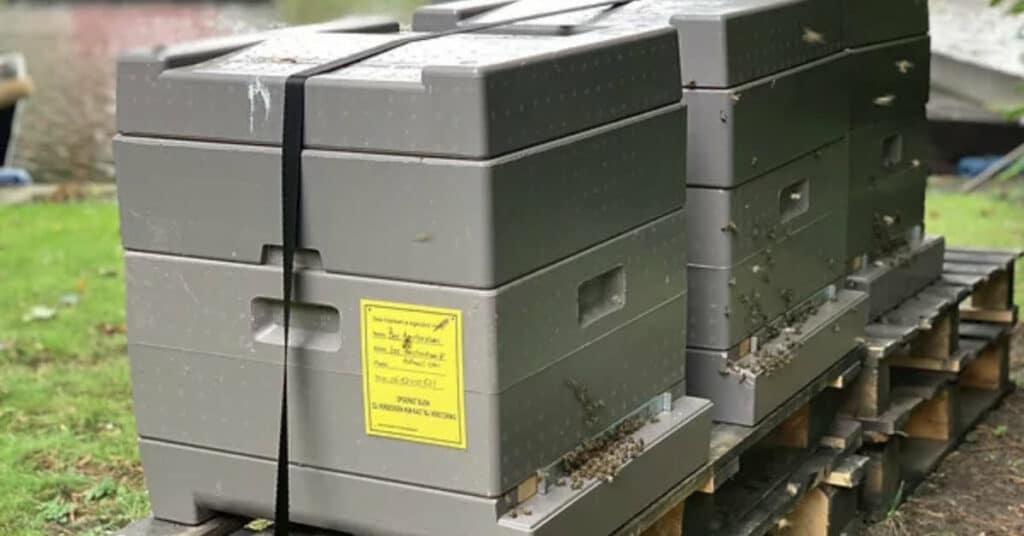
Bee Amsterdam
Bee Amsterdam aims to help and protect the natural world by creating awareness and supporting the bee communities in the city of Amsterdam.
“We are taking a small step to help the bees by introducing honey bee communities in Amsterdam and will continue to also encourage the native bees by creating solitary bee houses and planting native plants and wildflowers in the future,” says the company.
Bee Amsterdam provides the bee population and the beehive. At present, Bee Amsterdam’s beehives are adopted by multiple green companies and are spread across all of Amsterdam’s wind regions. The beehives are nurtured and maintained by their staff.
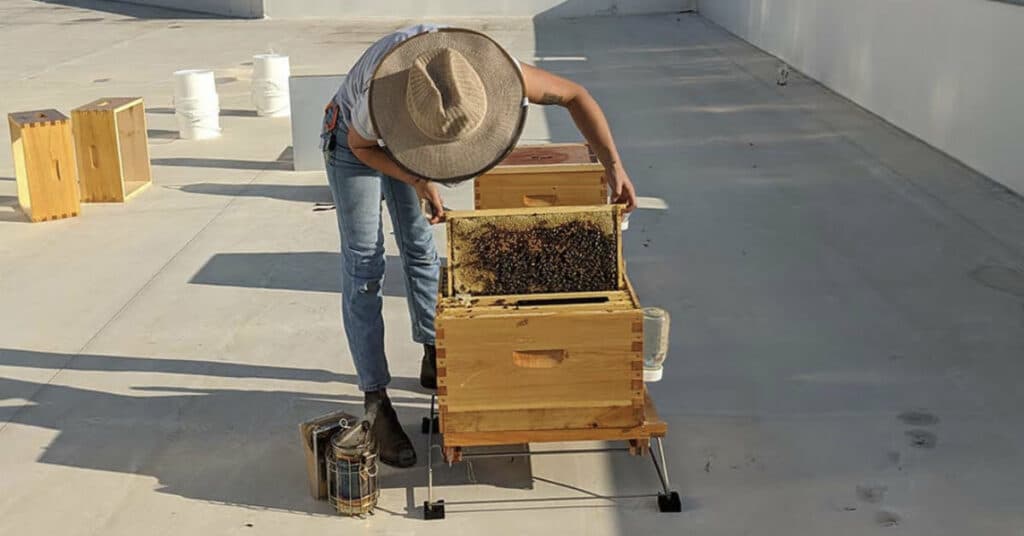
Alvéole
Based out of Montréal, Canada, Alvéole is an urban beekeeping service that instals beehives on the grounds or roofs of schools, businesses, and other organisations to meet sustainable development goals and increase engagement among employees.
The company’s goal is to make people fall in love with bees, build ecological awareness, and in time, more sustainable cities and food systems.
“Because of the honeybee’s social nature we’ve found that people can easily make a tangible connection between the environment, our dependency on pollinators, and our daily choices,” says Declan Rankin Jardin in an interview with I amsterdam.
Last year, the company expanded its operation into 12 new major cities in North America and five in Europe, including Amsterdam.
Talking about the expansion, Jardin says, “We chose Amsterdam because we wanted to provide an opportunity for our current employees to go on an adventure in Europe. The love of flowers, the forward-thinking spirit, and the environmental consciousness are three main ones that come to mind. The Dutch seem to be very worldly in their thinking, and we liked that. Pushing boundaries is one of our mottos, and this city is inspirational in that way.”

BuzzBench
BuzzBench is a sculptural bee-biotope cum bench developed in collaboration with Zone2Source, an international platform for Art, Nature & Technology in the Amstelpark, Amsterdam.
Designed by AnneMarie van Splunter, this bench was created particularly to make people interact with bees. It is constructed out of bamboo and cane which offers a separate pathway/tunnel for insects to lay eggs and survive the harsh seasons.
The BuzzBench can offer nesting help to at least 8 local bee species, says Zone2Source.
“The shell form of the bench changes and enforces the zooming of the insects and includes the visitor in a heightened sensual surrounding,” says Zone2Source.
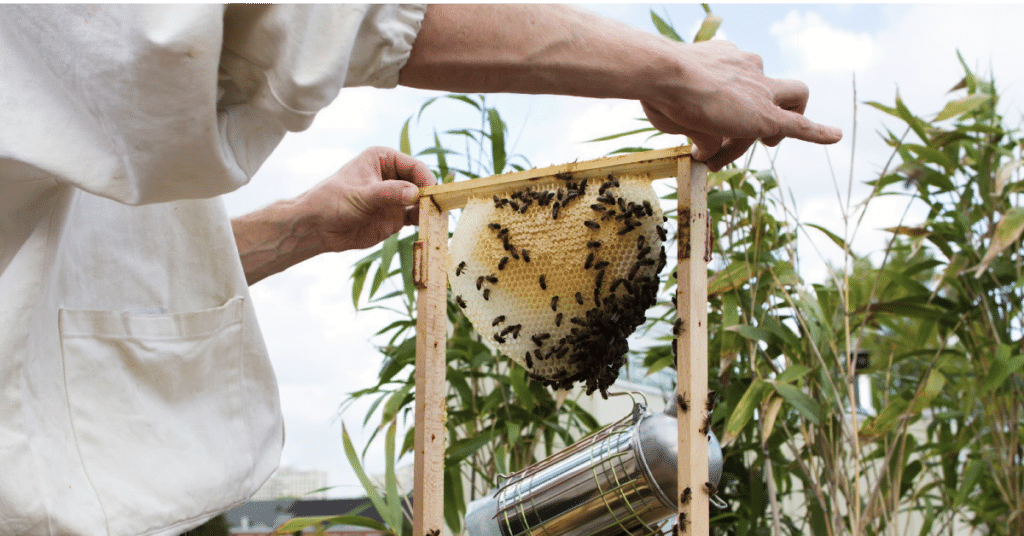
WellBeeing.org
WellBeeing is an Amsterdam-based beekeeping service, dedicated to improving the well-being and survival of bees.
In the Netherlands, the company is working on various aspects, like the re-wilding of honeybee populations to regain feral honeybees, offering courses to gain basic knowledge about the different types of pollinators, their meaning, role, and challenges, train people to become natural beekeepers in both Dutch and English, educate children on the importance of bees, and much more.
In addition to the Netherlands, the company has done projects and exchanged knowledge in Belgium, Uganda, New Zealand, Laos, Cambodia, Kenya, Rwanda, and Indonesia, so far.
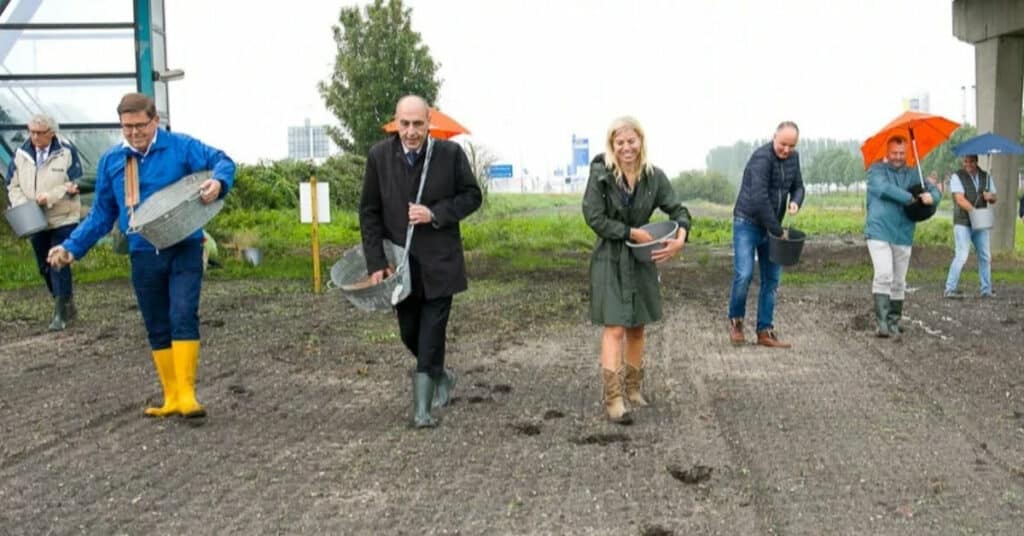
Honey Highway
Honey Highway is an initiative to alter unused roadsides in the Netherlands into flowery patches by sowing organic wildflower seeds to help increase the rapidly disappearing bee population.
The initiative aims to create a more bee-friendly environment in as many places as possible, including roadsides (national highways), train tracks, and dikes.
In 5 years, 500 kilometers have been completed, including A4 Delft-Schiedam, Spoorrails Gelderland, Maeslantkering Hoek van Holland, Schiphol Rijk, Joure, N237 Utrecht, N218 Maasvlakte, N14 The Hague, N32 Leeuwarden, N470 Delft-Zoetermeer, A2 Utrecht. A7 Afsluitdijk-Joure, Gooimeerdijk Almere.
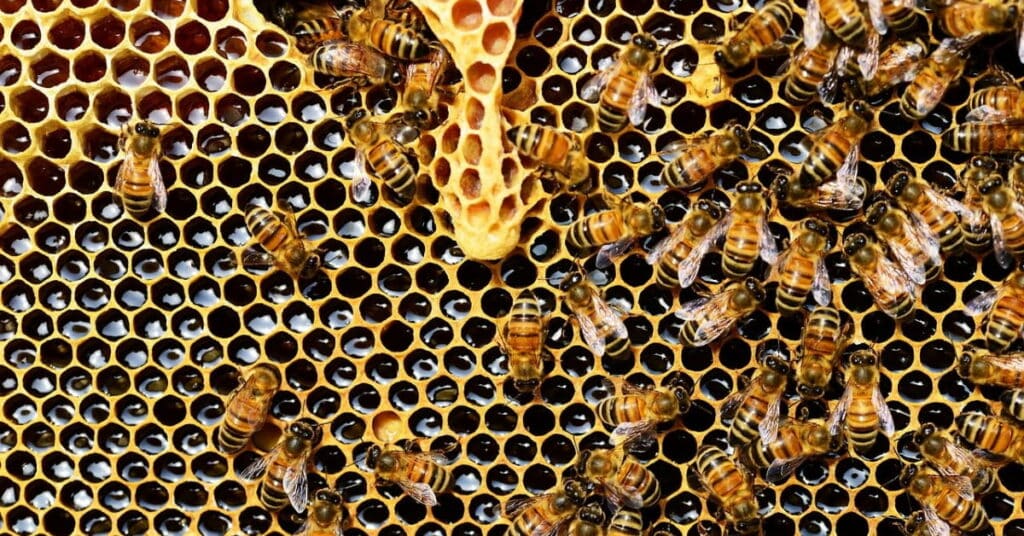
Amsterdamse Bijenvereniging AVBB (Amsterdam Bee Association)
The AVBB (Amsterdam Association for the Promotion of Beekeeping) unites beekeepers in Amsterdam.
According to Dutch Beekeepers Association (NBV), some of the members keep bees at one of the two bee parks in Amsterdam, while other members maintain bees on rooftops, backyards, school gardens, petting zoos and allotment complexes across the city.
The Amsterdam Bee Association comes equipped with various facilities, including a bee library, teaching garden, and museum collection. The association organises beekeepers’ meetings, sends the Bij-Zaken magazine, and helps if beekeepers get stuck with advice and assistance.
NL Pollinator Strategy – Initiative
In 2018, the Netherlands introduced a National Pollinator Strategy, intending to protect all pollinators, particularly the species of wild bees in the country. The goal of the agreement, signed by 43 parties, is to ensure the future existence of all the pollinator species in the Netherlands.
According to the agreement, wild bees require two things to survive – nesting sites and food supply. As a part of the agreement NL Pollinator Strategy combines three themes:
- Promoting biodiversity
- Improving nature-agriculture interaction and the habitat of bees
- Improving the beekeeping practice and the health of the honeybee
“The NL Pollinator Strategy contains measurable targets, with the intention that they will be achieved in stages,” says the agreement.
The agreement says that 2023 and 2030 are set as benchmark years where progress will be measured based on the results produced.








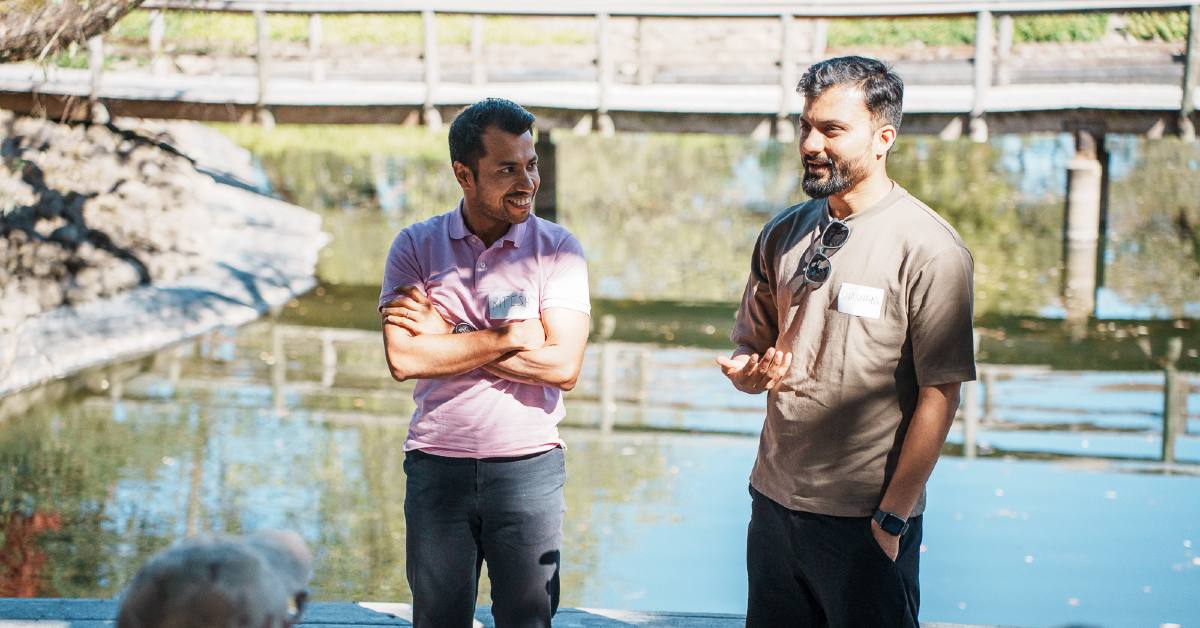

01
From telecom veteran to Dutch Startup Visa success: The Jignesh Dave story